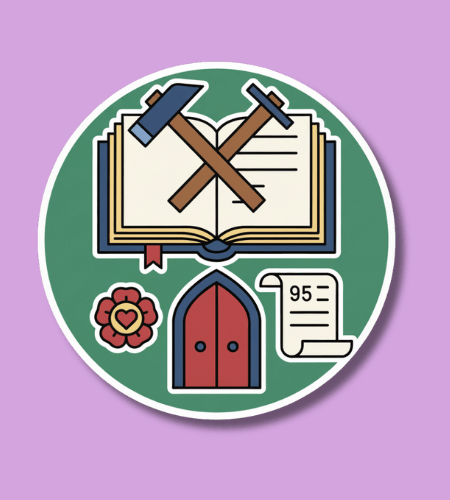The Reformation Day on October 31 marks the annual remembrance of the moment in 1517 when Martin Luther is traditionally said to have posted his “95 Theses” at the door of the church in Wittenberg, sparking what became the Protestant Reformation.
Table of Contents
History of Reformation Day
Reformation Day traces its roots to the event of October 31, 1517, when Martin Luther, a German monk and theologian, challenged the practices of the Catholic Church, particularly the sale of indulgences, by writing his “95 Theses”. This act signalled a turning point in the history of Christianity, leading to the emergence of Protestant churches across Europe. Today the holiday commemorates that watershed moment.
Over time, the commemoration solidified into an annual observance. By the 17th century several German territories had adopted October 31 as the date of remembrance. The observance spread beyond Germany to other nations and Protestant communities, and today it remains a meaningful date of reflection, worship and, in some regions, public holiday status.
Why is Reformation Day important?
Reformation Day is important because it invites individuals and communities to reflect on the power of conscience, scriptural authority, and reform in faith and society. The legacy of Luther’s act reminds us that institutions can be challenged, tradition can be questioned, and renewal is possible when people speak out with conviction. It encourages believers to consider how faith traditions evolve, adapting to culture, authenticity and conviction in continuity with their foundations.
Furthermore, this day underscores how religious, cultural and social changes are interconnected. The Reformation didn’t just reshape church practices — it influenced language, education, politics and individual identity. By remembering this moment, we recognise that ideas have consequences, and that communities of faith engage dynamically with the world around them.
- It reminds us faith is not static but can be renewed when necessary.
- It honours the courage of individuals who pursued reform despite resistance.
- It highlights the enduring influence of the Bible and personal conviction in the Protestant tradition.
- It shows how religious movements interact with culture, politics and society.
- It invites reflection on continuity and change within tradition rather than assuming everything must stay the same.
How to Observe Reformation Day
Observing Reformation Day can be both simple and meaningful without elaborate preparations. One accessible way is to attend or watch a church service focussing on the themes of reform, conscience and renewal — many Protestant congregations mark the day with prayers, hymns (including Luther’s “A Mighty Fortress Is Our God”) and reflection on scripture. Whether you normally attend such services or simply set aside time at home, you can pause to consider what faith or belief convictions mean for you and how you interact with tradition and change.
Another way is to engage personally: spend some time reading a passage of scripture that speaks about renewal or transformation, perhaps the Book of Romans or Galatians, and write down your own thoughts on where change is needed in your life or community. You might also gather with friends or family for a modest meal and conversation about historical, social or spiritual change—how our beliefs or communities have evolved, and what the next steps might be.
- Attend or view a worship service focused on themes of reform and faith.
- Read scripture and reflect on where change and renewal are needed in your life.
- Have a conversation with others about how faith or tradition has shifted in your community.
- Enjoy a simple meal and use it as an opportunity to think about past, present and future.
- Light a candle or spend a quiet moment in gratitude for the heritage of faith and the freedom to question and grow.
Reformation Day Dates Table
| Year | Date | Day |
|---|---|---|
| 2026 | October 31 | Saturday |
| 2027 | October 31 | Sunday |
| 2028 | October 31 | Tuesday |
| 2029 | October 31 | Wednesday |
| 2030 | October 31 | Thursday |
Subscribe to our newsletter and never miss a holiday again!

